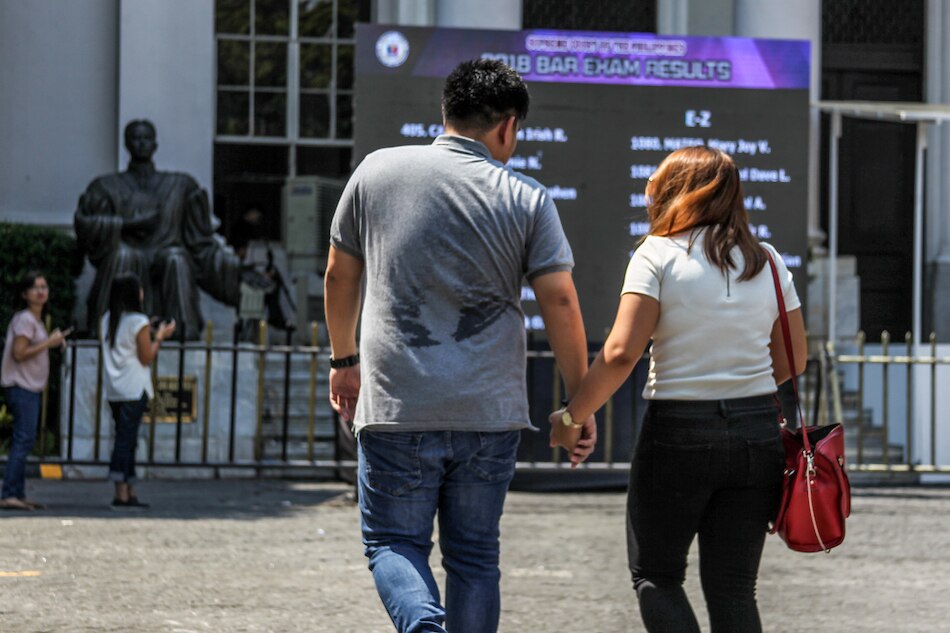Judiciary members face Senate panel, tackle reforms in courts | ABS-CBN

Welcome, Kapamilya! We use cookies to improve your browsing experience. Continuing to use this site means you agree to our use of cookies. Tell me more!
Judiciary members face Senate panel, tackle reforms in courts
Judiciary members face Senate panel, tackle reforms in courts
Sherrie Ann Torres,
ABS-CBN News
Published Sep 19, 2022 04:12 PM PHT
MANILA — Several members of the judiciary on Monday faced lawmakers to discuss reforms as they defend their proposed budget for 2023.
MANILA — Several members of the judiciary on Monday faced lawmakers to discuss reforms as they defend their proposed budget for 2023.
Court Administrator Raul Villanueva told the Senate Finance panel that the Bar exams would continue digitally, but would run for 4 days from the previous 2-day schedule.
Court Administrator Raul Villanueva told the Senate Finance panel that the Bar exams would continue digitally, but would run for 4 days from the previous 2-day schedule.
Bar exams, which will commence in November this year, will also be regionalized, Villanueva said.
Bar exams, which will commence in November this year, will also be regionalized, Villanueva said.
In jest, Sen. Jinggoy Estrada said that he would not ask many questions, given his pending cases before the Sandiganbayan and the Supreme Court.
In jest, Sen. Jinggoy Estrada said that he would not ask many questions, given his pending cases before the Sandiganbayan and the Supreme Court.
ADVERTISEMENT
Sen. Francis Tolentino meantime stressed on the need for the judiciary to fast-track the delivery of its planned technology-driven courts.
Sen. Francis Tolentino meantime stressed on the need for the judiciary to fast-track the delivery of its planned technology-driven courts.
NEW DIRECTIVES
Meanwhile, Associate Justice Samuel Gaerlan informed the panel that part of the SC’s newest directive to ensure that court proceedings would be held in Filipino or appropriate dialects that could be understood by the accused.
Meanwhile, Associate Justice Samuel Gaerlan informed the panel that part of the SC’s newest directive to ensure that court proceedings would be held in Filipino or appropriate dialects that could be understood by the accused.
The Court of Tax Appeals, according to Justice Roman del Rosario, is now guiding the accused on the nature of their case.
The Court of Tax Appeals, according to Justice Roman del Rosario, is now guiding the accused on the nature of their case.
“When we look into the law, the law is also written in English. Better to explain that the lawyers of parties are officers of the court. They have responsibility to explain to their clients the case,” Dela Rosario said.
“When we look into the law, the law is also written in English. Better to explain that the lawyers of parties are officers of the court. They have responsibility to explain to their clients the case,” Dela Rosario said.
“Masyadong drastic na all decisions have to be written in Tagalog/Filipino when the documents presented in court, all laws are written in English,” he added.
“Masyadong drastic na all decisions have to be written in Tagalog/Filipino when the documents presented in court, all laws are written in English,” he added.
RELATED VIDEOS:
ADVERTISEMENT
ADVERTISEMENT


